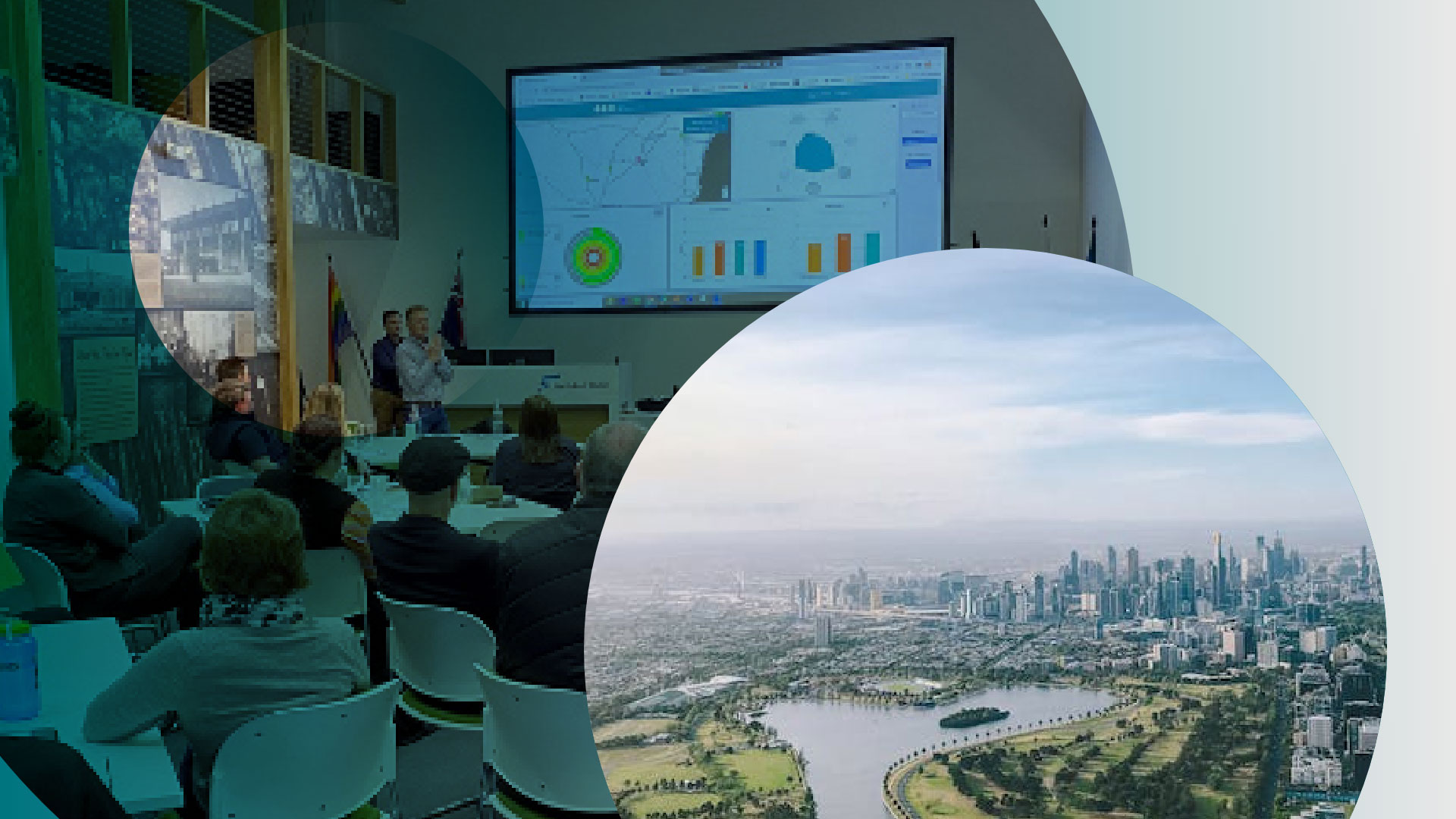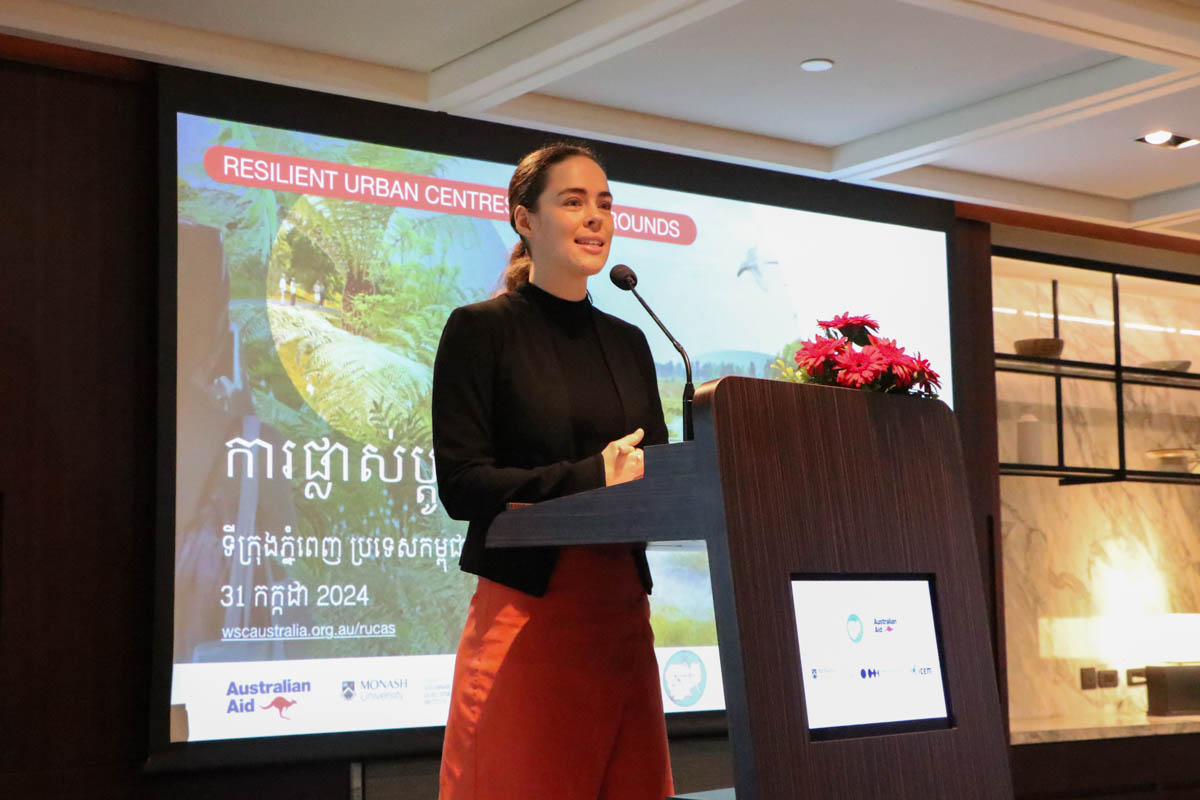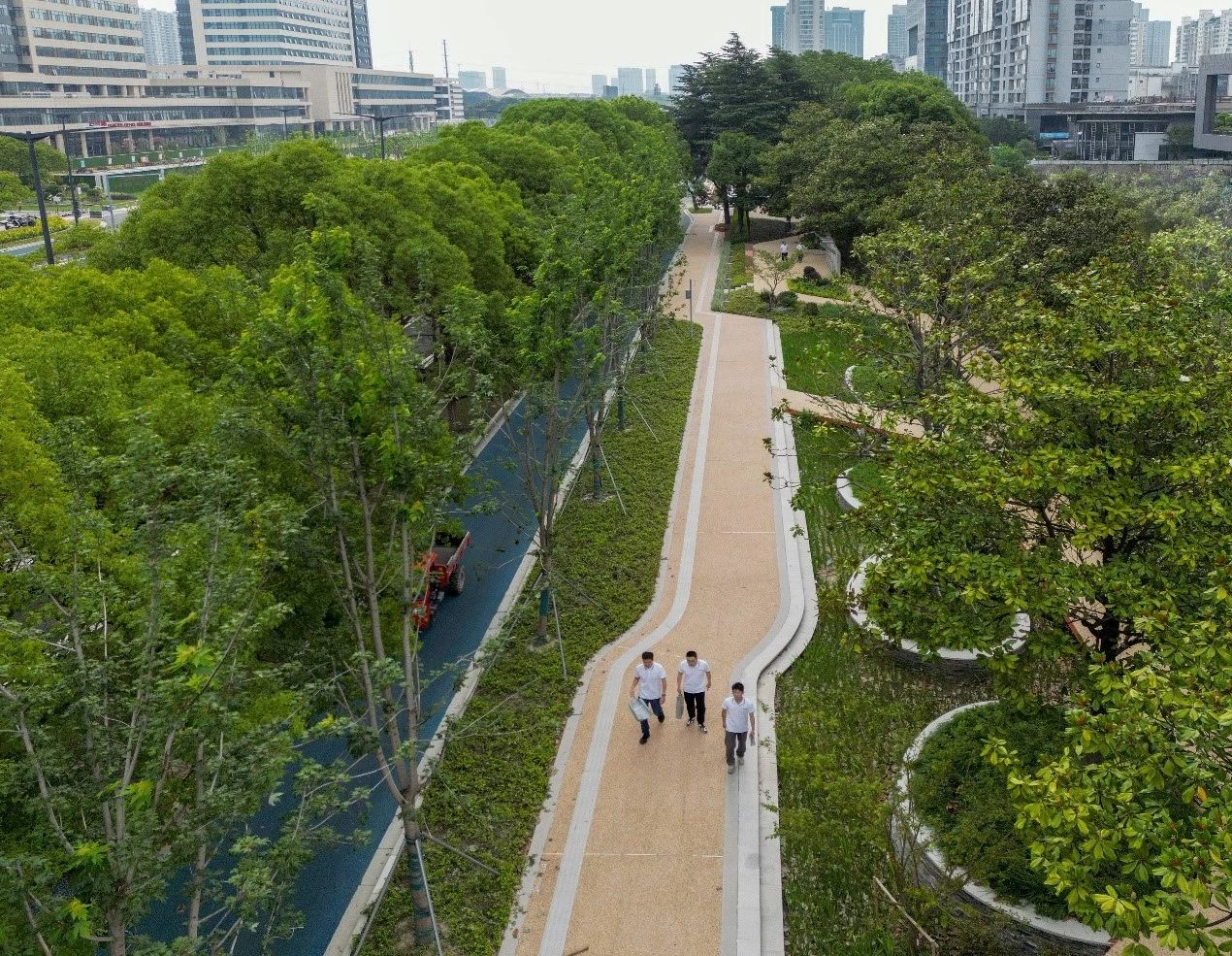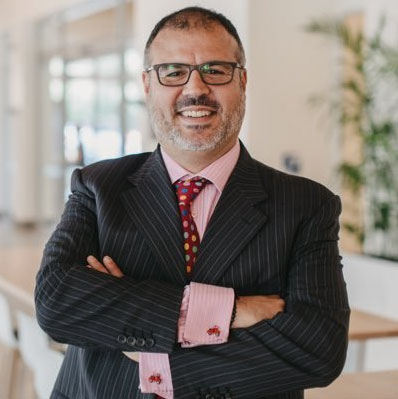Mainstreaming water sensitive cities practice in Australia
2024 will be a mix of national and state-based projects.
Our community water literacy project aims to build the community’s knowledge of water and understanding about how their actions can affect water management. We are working with the Monash Climate Change Communication Research Hub to develop and test practical strategies to increase community water literacy and evaluate the success of engagement actions. Water literacy is a key foundation of a water sensitive community. If the community does not know or understand the water cycle, then they cannot actively participate in water management.
This year, we will be trialling messages, mechanisms and channels in Perth and Melbourne, evaluating the results and then identifying lessons and developing communications collateral for water management and communications teams.

Our lifecycle costs project aims to better understand the cost to build, operate and maintain green infrastructure. This understanding in turn leads to better investment planning and budgeting. Practitioners will be able to compare the real cost of smaller scale water sensitive investments – biofiltration assets, passive watering solutions and permeable paving – with more conventional large scale asset investment. We’re currently testing a proof-of-concept lifecycle cost tool that will be scaled up through future stages.
As well as these national projects, we are delivering state-based projects in Western Australia and Victoria.
Western Australia
- We are working with partners to improve local governments’ understanding of and role in promoting application of water sensitive cities principles and practices. The project targets senior executives, mayors and councillors. We piloted the engagement program with the City of Canning and in 2024 will deliver engagement activities around Perth.
- We have a project to encourage adoption of WSUD approaches in small lot developments (fewer than 20 lots). The project addresses the challenges and uncertainty about their application in such contexts and the return on investment. We are developing a consistent framework for documenting lessons in applying WSUD infrastructure.
- We are also scoping a project on valuing green–blue infrastructure in the Perth and Peel region. This project will highlight the direct and broader contribution being made by green–blue infrastructure in the region across a range of sectors (e.g. health, tourism, economic development, community wellbeing and resilience).

Victoria
- We are working with practitioners to apply transition tools in north east Victoria. The project supports the existing state government-led IWM Forum processes and aims to better adapt the Catchment Scale Planning process applied in greater Melbourne to regional areas.
- We are examining current and planned community engagement activities being undertaken by the Victorian water sector (water authorities, catchment management authorities, and state and local government agencies). This project aims to obtain insights about the type, frequency and drivers for engagement, how effective the sector considers these activities to be, and any differences between metropolitan and regional activities.
- A new project in Melbourne’s northern growth corridor will explore how to protect a headwater stream (in this case Aitken Creek) in new urban developments.
Throughout 2024, we’ll be conducting webinars, to share updates about these projects. You can find out more about the webinar series below.
Creating inclusive, liveable and resilient urban centres in Greater Mekong countries
Our international program aims to spread the use of water sensitive infrastructure to make urban centres more inclusive, liveable and resilient. Our approach is 2-pronged:
- Demonstrating the KNOW-WHAT – We work with governments, academics, development agencies, civil society groups and technical experts to design nature-based solutions – including non-structural and structural water infrastructure – to address issues such as flooding and heat affecting rapidly-growing urban centres.
- Developing the KNOW-HOW – We train local practitioners to apply the principles and tools to evaluate options, design and implement nature-based solutions, creating a community of practice.
At the moment, our efforts are concentrated in the Greater Mekong region in South East Asia.
Our flagship program – the DFAT-funded Resilient Urban Centres and Surrounds (RUCaS) program – explores using nature-based water infrastructure in Thailand, Viet Nam, Cambodia and Lao PDR. We have progressed 8 case studies (2 in each country) that will demonstrate how nature-based solutions can be adapted and applied to reflect different local conditions, considering options both in the city centres and their wider catchments.
The highlight for 2023 was the regional conference and training in November, which explored the context, opportunities and emerging practice for advancing nature-based solutions in the greater Mekong region.

We are working on other projects in the region that complement our RUCaS program:
- Climate change, water security and disability inclusion research in Viet Nam – We’re working with Hanoi Association of Persons with Disabilities (DP Hanoi) to collaborate on research and build their capacity to collect and use data to influence policies and initiatives and secure better outcomes for peoples with disabilities in the context of climate change and increasing water insecurity. This project is supported by the Australian Water Partnership and DFAT. You can read more about this project here.
- Eastern Economic Corridor Collaboration in Thailand – We’re collaborating with the Eastern Economic Corridor Office and DFAT to develop an integrated urban water strategy and build in-country capacity to implement it. You can read more about this project here.
- Establishing a Knowledge Hub and building capacity on urban ecosystem-based adaptation (EbA) in Lao PDR – We’re partnering with the Ministry of Natural Resources and Environment (MONRE), the National University of Laos (NUoL) and the United Nations Environment Programme to prepare a guideline for wetland and urban stream restoration and management. We’re also conducting joint research that will build MONRE’s and NUoL’s capacity for flood risk management and ecosystem-based adaptations. This project is supported by the Green Climate Fund.




